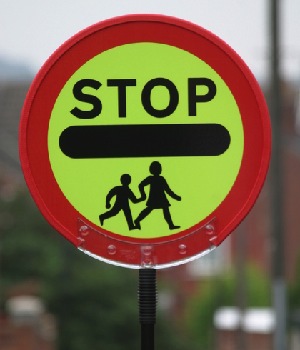 Former Labour Attorney General Lord Morris of Aberavon announced that 27 police forces are currently investigating 54 alleged gangs involved in child grooming, in England and Wales - the crackdown on grooming follows the recent convictions of the sex abuse ring in the Oxford area.
Former Labour Attorney General Lord Morris of Aberavon announced that 27 police forces are currently investigating 54 alleged gangs involved in child grooming, in England and Wales - the crackdown on grooming follows the recent convictions of the sex abuse ring in the Oxford area.
Former deputy high court judge and independent crossbencher Lord Elystan-Morgan suggested that law enforcement agencies should be ‘prepared to adopt more robust tactics, including infiltration and surveillance’. Lord Taylor reassuringly stated that ‘the government is determined the system should work, the system needs to work, to protect these vulnerable children.’
Issues of grooming, especially over the internet, are becoming increasingly more of an issue. In 2012 1,145 online abuse cases were reported to the Child Exploitation and Online Protection Centre (CEOP).
Online sexual abuse is often conducted through instant messenger applications, social networking sites and webcams. In some cases reported, offenders hacked into victims’ accounts and refused to give their accounts back unless the child did what the abuser told them to do; demands then became more frequent, making the child feel trapped in a cycle. The offender may then ask to meet the victims in person, and the cycle will continue to spiral out of control.
Law enforcement authorities have said they rely upon victims reporting these issues, but many children, without being educated on what grooming is, may not realise what is happening at first, they may then feel stuck, helpless and not understand what actions to take.
As more and more children are gaining unsupervised access to the internet (through the assortment of devices which now offer web access), the issue of grooming could potentially escalate, and with no one there to safeguard them, they need to be taught how to safeguard themselves.
Here at E-safety Support we recognise the seriousness of the issue and how important it is that all children who use the internet understand that grooming happens so frequently. The ‘it won’t happen to me’ attitude is also an issue to address as well as the worrying reality that grooming is not restricted to strangers, but can also be from someone in a position of trust. Children need to be educated, in school and at home, on what grooming is, how to avoid falling victim to it (both online and offline), and what to do if they ever encounter grooming attempts. Teaching children this information will reinforce understanding and awareness of grooming and inappropriate contact and help them to avoid dangerous situations.

 It was widely reported yesterday that the government have stated that the ‘draft curriculum for primary schools in England will, for the first time, include lessons on how to stay safe online.’ This announcement comes amid fresh concerns that explicit online materials are too easily accessible for young children.
It was widely reported yesterday that the government have stated that the ‘draft curriculum for primary schools in England will, for the first time, include lessons on how to stay safe online.’ This announcement comes amid fresh concerns that explicit online materials are too easily accessible for young children.  Schools in built up areas are identified easily by the safety railings immediately outside the school gates. It's fairly common knowledge that these are placed there to ensure that when children leave the safety of the school perimeter fence they do not walk straight out into oncoming traffic.
Schools in built up areas are identified easily by the safety railings immediately outside the school gates. It's fairly common knowledge that these are placed there to ensure that when children leave the safety of the school perimeter fence they do not walk straight out into oncoming traffic. 